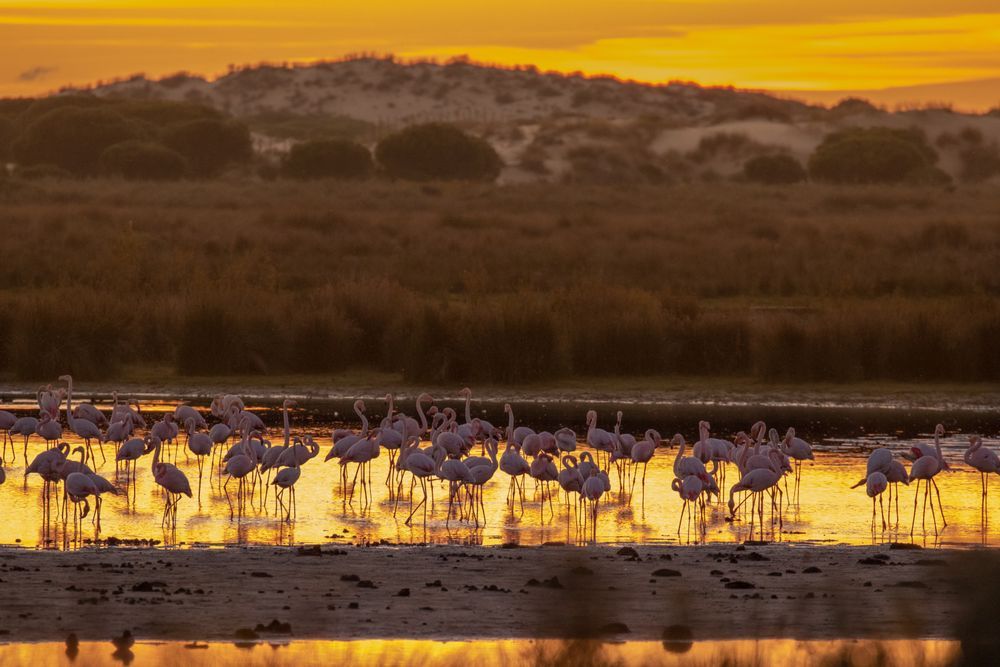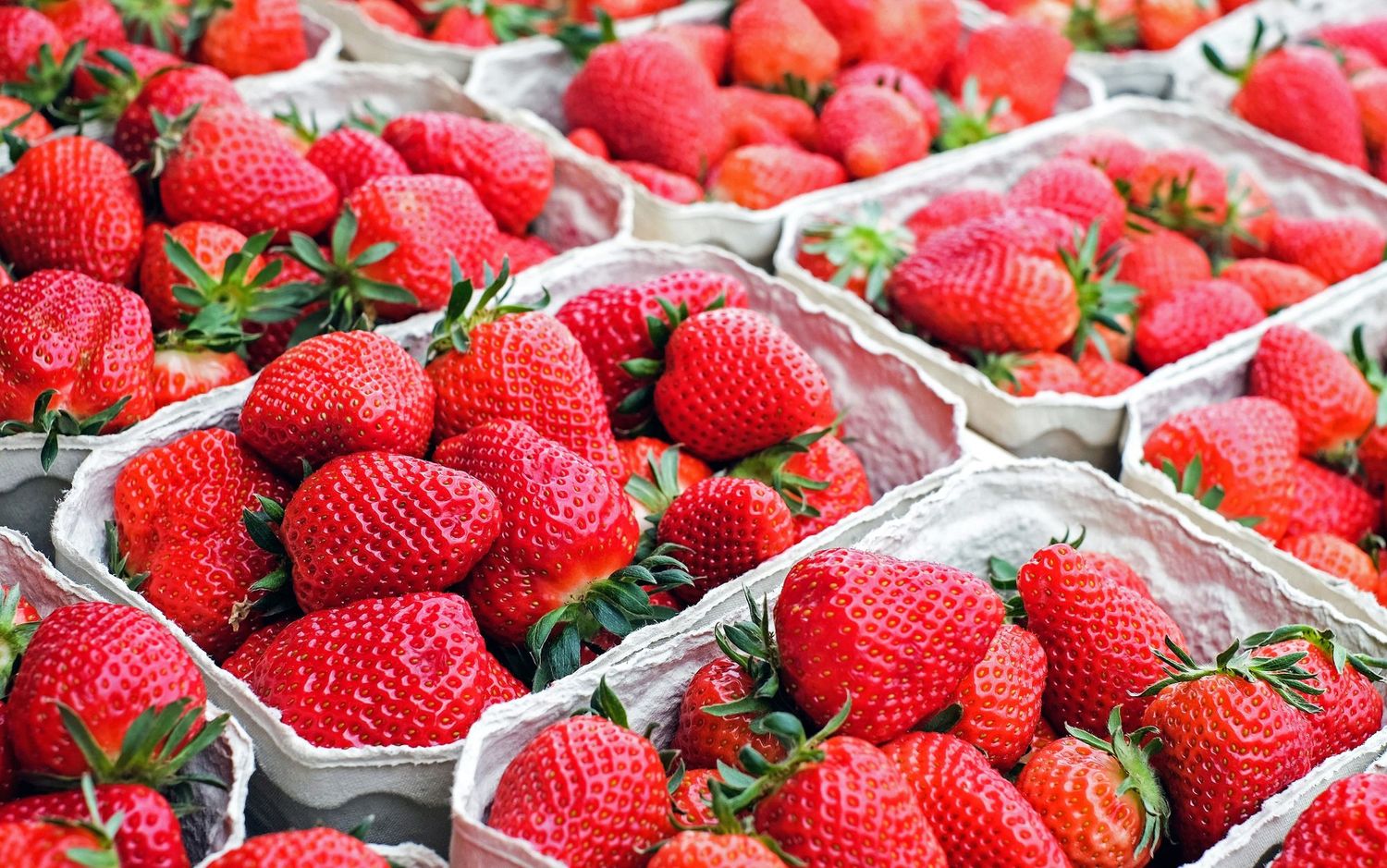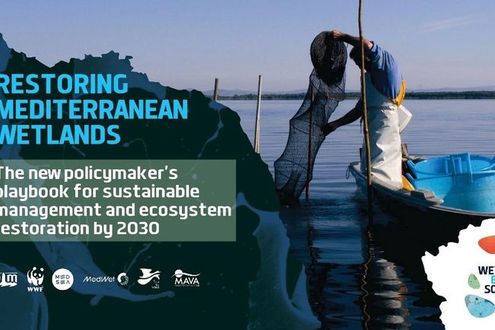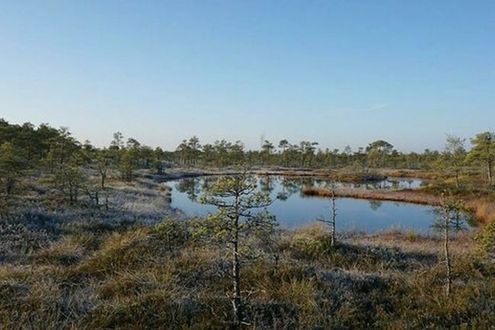Concern is growing among researchers that a fragile and ecologically essential Spanish wetland could be under threat, due to a controversial new bill concerning strawberry production in the area.
Scientists from the Spanish National Research Council and the University of Leeds say urgent protection is needed for the fragile Doñana wetlands in Andalusia as the result of the bill which sanctions illegal strawberry production in its immediate vicinity.
The bill, which was approved by the regional government without parliamentary debate, allows intensive irrigated strawberry farming on land originally devoted to forestry or rain-fed agriculture. 80% of the strawberries grown in the region are exported, with the UK and Germany receiving half of these exports.
Professors Luis Santamaría from the Doñana Biological Station in Spain, and Julia Martin-Ortega from the University of Leeds’ Sustainability Research Institute, have raised their concerns in a paper published today in the Nature Water journal.
Luis Santamaría said: “Although Doñana still has outstanding biodiversity that justifies its conservation, it has been subject to relentless degradation over decades, which is reaching a point of-no-return.
“Instead of taking the decisive actions required to save it, the current Bill marks the return of outdated, unsustainable policies that will accelerate its end.”

Sunset at Laguna Dulce, Doñana. Photography by Jorge Monje
Doñana is one of the largest wetlands in Europe and hosts up to half a million migratory waterbirds of over 50 different species, and the highly endangered Iberian lynx. Extensive research shows vegetation and soils are severely degraded, temporary ponds have reduced by over half, and waterbirds are decreasing in numbers.
Spain was recently threatened with sanctions as a result of the Bill, in what was an unprecedented confrontation of the regional Andalusian government with the European Commission.
The Bill also poses a reputational and economic risk, with major European retailers having already voiced concerns about the environmental impact of their Spanish imports.
Professor Julia Martin-Ortega said: “This Bill may compromise the past endeavours by legal strawberry producers who have made an effort to reduce water consumption and agro-chemical use in the area”.
In fact, a campaign is already underway by the German pressure group Campact, calling on retailers to stop selling so called “dry strawberries”.
Professor Martin-Ortega added: “We can only hope that reactions against this Bill will trigger new conservation policy. It is extremely important that any decision moving forward is taken on the basis of scientific evidence, which in this case is unequivocal: Doñana’s ecosystem is in danger.”
The Bill comes as the European Commission is working to advance the EU Nature Restoration Law, significant legislation that would require EU member states to restore wetlands, forests, marine habitats and other landscapes that have been degraded by human activity. The European Commission estimates that over 80 percent of habitats in Europe are currently in “poor” condition.
Doñana is one of the ‘Knowledge Sites’ within the EU-funded project WaterLANDS which aims to restore wetland sites throughout Europe and lay the foundations for protection across wider areas.
WaterLANDS is one of four major projects funded to support the European Green Deal’s aspirations for a low-carbon, climate resilient future. The projects funded within the “Restoration Cluster” address the restoration of wetlands, forests, coastlines and freshwaters respectively.
Dr Shane Mc Guinness, of University College Dublin and Project Co-Coordinator of WaterLANDS, said: "Because of their support for biodiversity, water, carbon and culture, wetlands are extremely important to humans and nature alike.
“Properly valuing these areas is therefore more important than ever and their long-term protection should always be prioritised over short-term economic gain.”
Partner Information
Doñana Biological Station (CSIC-EBD), part of The Spanish National Research Council, carries out interdisciplinary research aimed at understanding how biodiversity is generated and maintained, how it deteriorates, and how it can be preserved and restored. EBD is the main contributor to research at Doñana National Park, and it owns and manages two Biological Reserves (RBD and RBG) within it.
The University of Leeds is one of the largest higher education institutions in the UK, with more than 39,000 students from more than 137 different countries. The University of Leeds harnesses its diverse expertise in research and education to help shape a better future for humanity, working through collaboration to tackle inequalities, achieve societal impact and drive change. The University is a member of the Russell Group of research-intensive universities, and is a major partner in the Alan Turing, Rosalind Franklin and Royce Institutes.


